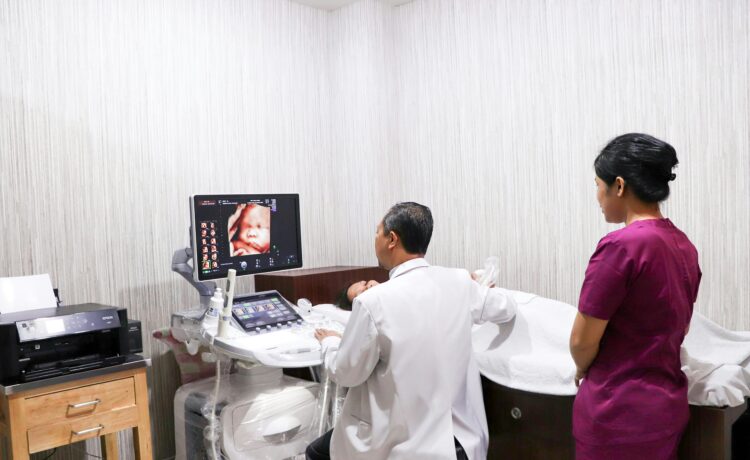There are a lot of things that most people do not know or cannot explain, about the beginning or the continuation of a family. For many people as well as many couples, certain questions arise and they start looking for solutions and advice. This is where a gynaecologist comes in as what can be considered a life-saver at times. Although these specialists mostly work on female health, they are also very crucial when it comes to issues to do with fertility. As you read this article we want the reader to better understand how a gynaecologist can help you if you are just thinking about pregnancy for the first time or are struggling with the process. Now, it is time to take a closer look at how these specialists can contribute to shedding light on your road to creation of a family.
How a gynaecologist can help with reproductive health
From the literature a gynaecologist is a vital person to handle reproductive System Health. As a result of this they provide patient centered care and support for patients as per the individual’s needs.
In the consultations, they check on a patient’s medical records, and also get to know any issues that a patient has. This open dialogue ensure that one is aware of any possible problems that may arise in future.
Doctors in the field of gynecology perform important tests that may reveal the cause of the couple’s infertility. Screening for STIs, hormonal contraceptive side effects or structural problems is helpful for reproductive health.
Also, they include menstruation and cycle tips on health and fertility. There is nothing wrong with the south’s health, however it is vital to know when something is out of place.
If there is an indication of any complication your gynecologist will advise on the right treatment or introduce you to other health practitioners for further treatment.
Visit https://drjamesbrown.com.au/, Fertility expert which guarantees optimum treatment and management right from the onset to the entire process to meet your fertility goals.
Common fertility issues and treatments offered by gynaecologists
There are types of fertility issues and they are likely to be handled by a gynaecologists because of the following. Some of these include; Low or irregular cycles; PCOS; Endometriosis. Among them the identification of each condition demands a special management strategy.
In cases of hormonal disturbances, the doctor may prescribe fertility drugs such as Clomiphene citrate for creating ovulation. Measures such as this may often provide favourable results.
When there are structural issues with the woman’s reproductive system then specific remedies including surgeries like laparoscopy might be required. Hence, this approach is less invasive enables the doctors to fix the abnormalities as well as augment the chances of conception.
They also advise on assisted reproductive technology including in vitro fertilization (IVF for short). Especially, they collaborate with other experts to make these services more efficient for the couples who need more help on their way to become parents.
Lifestyle factors that can affect fertility and how a gynaecologist can provide guidance
Fertility is therefore determined by someone’s lifestyle. Some of the lifestyle aspects are diet and exercise, mental health, and substance use which may strongly influence reproductive health.
A proper balanced diet that is comprised of unprocessed foods can improve chances of ovulation and sperm count. While at the same time, too much of alcohol or caffeine might decrease your chances of conceiving.
Another non-pharmacological intervention is also the need to take some exercises regularly. It helps in weight control which is very important in hormonal balance and overall health of an individual. However they increase, strenuous workouts, without having adequate rest period is counterproductive.
Work pressure management is also part of the solutions, and with good reason of course. Stress is known to have a negative impact on hormonal processes which are responsible for sexual activities. Such an approach can be helpful; other exercises, such as mindfulness and yoga, might help.
In this case, a gynaecologist is of immense use here because he/she offers recommendations on what amount is safe for a woman to consume. They give recommendations based on the circumstances of a person. As such, with their assistance they’ll help you make the necessary changes that enhance fertility as well as general health.
Importance of regular check-ups with a gynaecologist
As stated earlier, it’s essential to have routine appointments with a gynaecologist to help in your fertility process. These appointments make it possible for any problems to be detected early enough hence ensure the patient is diagnosed and started on treatment.
In these visits, the gynaecologist can diagnose your reproductive health in details. They will engage you on matters concerning menstruation, sexual issues and any issue you may have in trying to conceive. It thus ensures that there is an open channel of communication, which makes you feel free to speak of issues that may be regarded as confidential.
It is thus important to consider lifestyle factors within fertility; weight, diet and stress are all considerations that can be routinely assessed during examination appointments. You can ask your doctor about special needs and he or she will make a plan suitable for you.
Also, getting checked up frequently also enhances confidence between you and your gynaecologist. It also strengthen the support throughout the fertility processes because practitioners are more knowledgeable with your history and preference.
It therefore goes without saying that it is important for women who are trying to get pregnant or who are planning for future pregnancies to set time for these important appointments. Focusing on this aspect of healthcare makes you a more informed patient on the way you are going to achieve your fertility goals in the future and keep your reproductive organs healthy.





